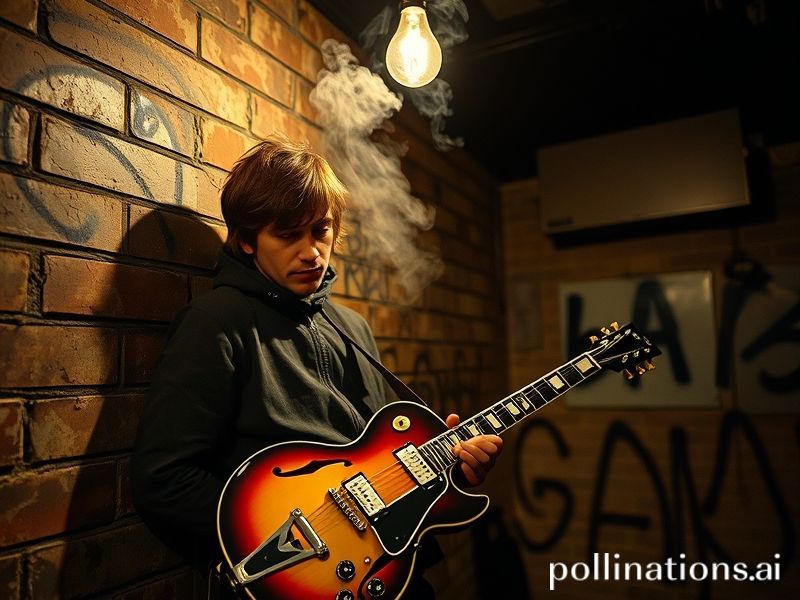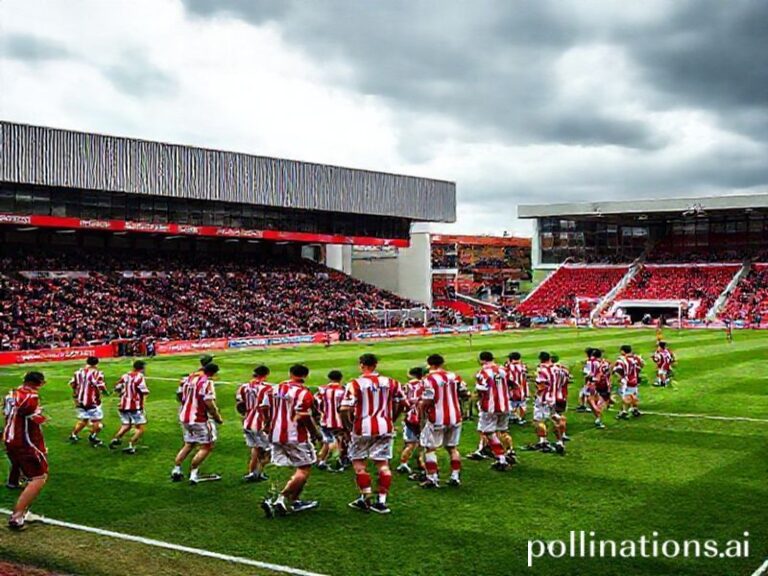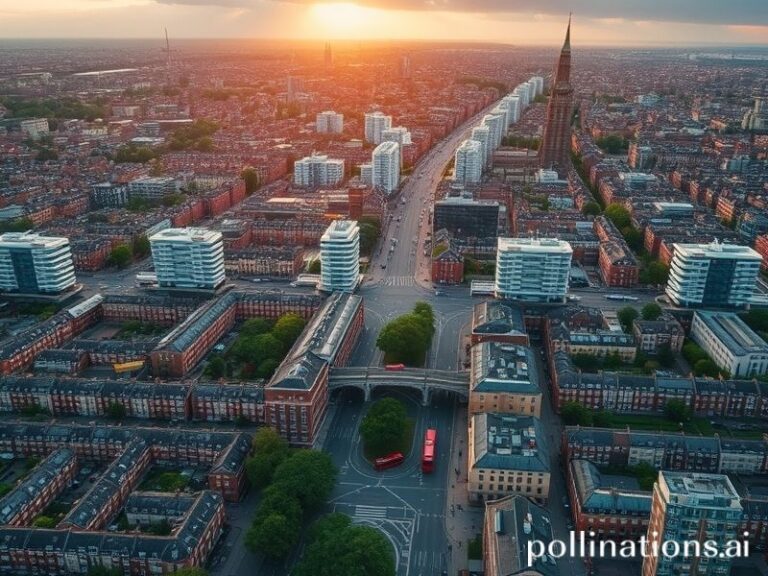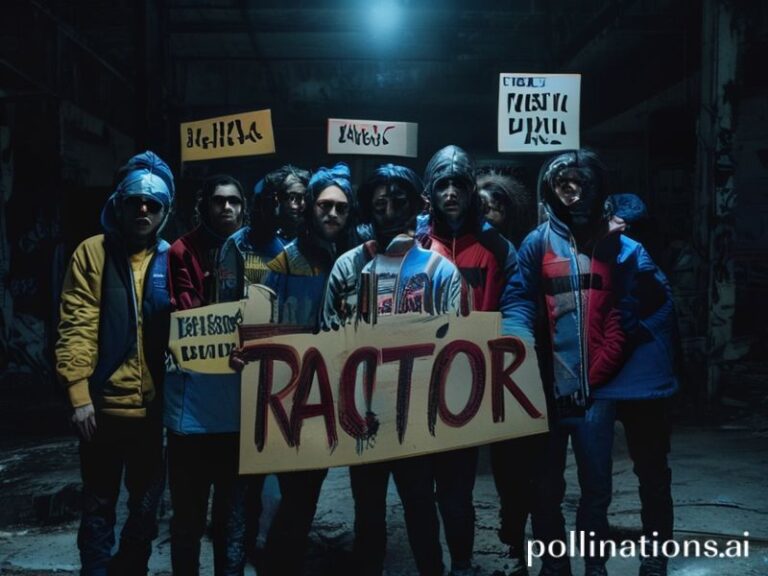Noel Gallagher: The Last Working British Export That Doesn’t Need a Customs Form
Noel Gallagher, the man who once claimed he’d “rather drink petrol straight from the pump” than reform Oasis, has quietly become the United Kingdom’s last functioning export that doesn’t require refrigeration, a customs form, or an emergency IMF bailout. While Downing Street lurches from self-inflicted crisis to crisis like a drunk tourist on the Ramblas, Gallagher cheerfully tours the planet with the High Flying Birds, proving that Brit soft power now travels economy class but still lands on time.
From a global vantage point—say, a rooftop bar in Mexico City where the mezcal is smoky and the playlist is 50 % Oasis—Gallagher’s presence feels less like nostalgia and more like statecraft. The Mexican kids in vintage Definitely Maybe shirts aren’t pining for 1995 Manchester drizzle; they’re appropriating a moment when the UK still looked cool from afar, before Brexit made it resemble a pub lock-in nobody can leave. Gallagher’s twanging Manchester vowels bounce off colonial-era balconies, reminding everyone that imperial legacies now arrive via Spotify rather than gunboat.
Head east and the irony thickens. In Seoul, K-pop trainees rehearse “Don’t Look Back in Anger” as part of their English diction drills, unaware that the lyric was written by a man who has never once successfully looked forward without anger. Meanwhile, Japanese businessmen queue politely for signed vinyl at Tower Records Shibuya, treating Gallagher like a rare whisk(e)y: expensive, peaty, guaranteed to start a bar fight if uncorked after midnight. The yen may be weak, but imported resentment still carries a premium.
Gallagher’s latest record, Council Skies, is ostensibly about municipal sunsets over Manchester housing estates, yet its melodies have already colonized European festival season like an invasive shrub. In Croatia, a nation whose coastline Britain once promised to protect and then forgot, thousands of sunburned Europeans chant “Pretty Boy” while the Adriatic glitters behind them—proof that irony, unlike fish stocks, is inexhaustible. Somewhere in Brussels, a eurocrat updating the Brexit trade annex sighs, realizing that the only frictionless export clause still working is the one carrying Gallagher’s chord progressions.
Financially, the numbers are almost comically modest. Gallagher’s touring outfit grosses less in a year than Taylor Swift spends on private jet fuel in a fortnight, yet his cultural arbitrage is priceless: every ticket sold in Bogotá or Bangkok is a micro-remittance from the Global South to a post-industrial North that can’t manufacture much beyond grievance and guitar hooks. If Rishi Sunak’s government possessed half the soft-power ROI of one Gallagher three-night stand at the Accor Arena, the UK balance-of-payments crisis would be solved by next Tuesday. Instead, Downing Street has to settle for sending actual birds—pigeons, high-flying or otherwise—because the Foreign Office can’t afford the jet fuel.
Critics, mostly British, moan that Gallagher keeps rewriting the same song. They miss the geopolitical elegance: in a world fracturing into algorithmic micro-cultures, a man repeating himself is the closest thing we have to shared ground. Chinese millennials who’ve never heard of the Gallaghers’ 2009 breakup still know the riff to “Wonderwall” because it’s easier to hum than explain TikTok’s privacy policy. In Lagos traffic, danfo buses blast Champagne Supernova over tinny speakers, drowning out both the muezzin and the IMF’s latest austerity sermon. It’s not imperialism, exactly—more like a lullaby for late capitalism, delivered in a nasal accent that once ruled an empire and now merely rules the pre-drinks playlist.
At 56, Gallagher has achieved the rare feat of becoming heritage rock without requiring a mausoleum. Unlike Mick Jagger, who looks increasingly like a well-preserved sarcophagus doing cardio, Gallagher appears almost ageless—perpetually 35 and annoyed, a Dorian Gray painted in cigarette ash. The planet spins, currencies collapse, glaciers calve, but somewhere tonight he’ll step onstage, slag off his brother via international microphone, and 20,000 strangers will feel momentarily united in glorious, petty resentment. If that isn’t globalization working precisely as advertised, then nothing is.
And so the world keeps turning to the sound of Gallagher’s jangling Rickenbacker, a reminder that while Britain’s political capital dwindles faster than its water supply, its second-most-famous Mancunian still has sufficient swagger to weaponize nostalgia for foreign currency. In the end, perhaps that’s the real special relationship: we give them the tunes, they give us the illusion that 1996 can last forever. Cheers, mate—same time next stadium.







